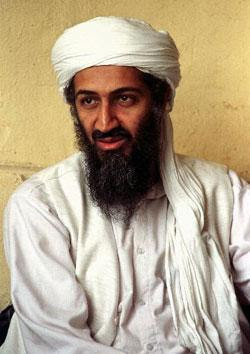
AQAP's key leaders appeared together in a video from early 2009. Pictured (from left to right) are: Qasim al Raymi (possibly EKIA), Said Ali al Shihri (possibly detained), Nasir al Wuhayshi, and Muhammad al Awfi
Just wanted to highlight two major events that happened over the weekend in the fight against AQAP. If reports from the inside Yemen are true, government forces struck a major blow against the top tier leadership of AQAP. Neither US authorities or AQAP have confirmed the claims of the Yemeni government, but both claims still deserve mention due to the potential impact on AQAP's operational capability over the next 1-2 months.
- On 15 January, an airstrike in the Aljasher region resulted in 6x EKIA, reportedly including the AQAP Military Emir - Qasim al Raymi aka Abu Hurayah. As usual, Bill Roggio at the Long War Journal has excellent coverage and background on the strike. Also, for an even more in-depth bio on Qasim al Raymi, check out the great coverage at Waq al Waq, a must-read for anyone interested in Yemen. AQAP responded quickly with a denial of his death, but we'll likely have to wait a few more days for final confirmation. Many analysts believe that Qasim al Raymi (who was the former overall emir of AQ in Yemen prior to their merger into AQAP) was the most critical target within the AQAP network based on his extensive experience and connections across the wider AQ movement.
- On 18 January, the Yemeni government claimed that they captured AQAP's deputy emir - Said Ali al Shihri in the Sylan district in Shabwa. According to Bill Roggio at LWJ, the initial report from the Yemen Observer explains the circumstances of capture: reportedly al Shihri and several other militants were traveling in a car that flipped when trying to bypass a flash checkpoint established by Yemeni government forces. Al Shihri was appointed the deputy to AQAP Emir Nasir al Wuhayshi after the formation of AQAP in early 2009. Previously, al Shihri (a Saudi citizen) had served as a travel facilitator in Iran and also spent time fighting in Afghanistan. He was released from detention at Guantanamo Bay in 2007 and placed into the Saudi rehab program, but quickly returned to his terrorist activities. Several months later, he played a major role in the attack on the US Embassy in Sanaa in September 2008.
If these claims prove true, there will clearly be a significant impact on AQAP's ability to conduct operations in the near to mid-term. However, I believe that they already likely have a major operation (or multiple operations) near the point of execution. Since these attacks would already be quite far along in the operational timeline, the capture/death of al Shihri and al Raymi will have minimal impact in preventing them.
While it's difficult to predict methodology and target selection, I believe we are likely to see two specific attacks in the next 1-3 months: 1) Coordinated suicide strike against the US Embassy in Sanaa (or other known US/Western target). This was recently attempted, and foiled by the Yemeni police, last month and I expect AQAP will keep trying until they get it right; 2) Another strike(s) against US airlines along a similar vein of the failed Christmas Day attack. I believe that Anwar al Awlaki (the dual US-Yemen citizen and radical cleric linked to both the failed Dec 25 attack and the Ft. Hood attacks) is playing an increasingly important role within the organization. His efforts to recruit Western and non-Arab youth are aimed at developing a cadre of suicide bombers with access to the US via their visas (for example, Canada is a perfect example and an area we've seen can be fertile for recruiting). Also, I expect AQAP (and other AQ-affiliated groups) to attempt an attack against the homeland using female suicide bombers. They continue to heavily recruit women and it's just a matter of time until they can put together an attack (similar to the spike in female suicide bombers we witnessed in Iraq in 2008).
In addition to considering future attacks being planned by AQAP, we must also take a step back and put the recent successes of the Yemeni government (likely with US assistance) into a larger context. Lethal targeting of top and mid-tier leaders is a critical element in our fight against AQAP, but there's much more we need to be doing to counter the group's growing influence and capability. In an upcoming post, I plan to examine the wider strategy that the US is waging against AQAP - taking a holistic and comprehensive look at our diplomatic, information, military, and economic efforts in Yemen.
In the meantime, for some great background on Yemen and AQAP, check out the West Point CTC Sentinel's Special Issue on Yemen.




.jpg)






Well, in all hope the statement was retracted. LWJ Roggio has the report here: http://www.longwarjournal.org/archives/2010/01/yemen_retracts_repor.php.
ReplyDeleteThe most problematic aspect:
"But there is a problem with the current report. Yusuf al Shihri was killed last year, along with two other al Qaeda operatives, while attempting to cross the border into Saudi Arabia while carrying weapons and suicide vests. Yusuf al Shihri, like Said, was a former detainee at the Guantanamo Bay detention facility in Cuba.
The retraction of the report of Said Ali al Shihri's capture and the substituted report of Yusuf's capture cast further doubt on the veracity of reports by the Yemeni government on its operations against Al Qaeda in the Arabian Peninsula."
This is not promising given the geo-political climate.
Thanks for sharing thiis
ReplyDelete